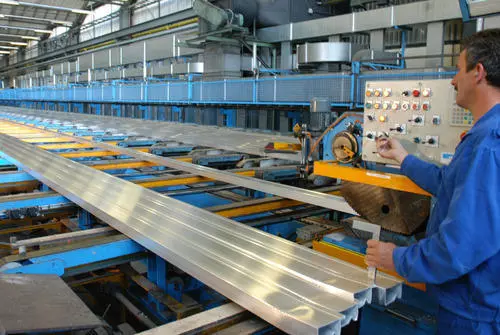
Centre won’t expand PLI scheme beyond 14 pilot sectors after setbacks: Report
Scheme introduced to compete with China in manufacturing, could only achieve 37 pc of target set by Centre till October 2024

The Centre has decided not to expand the ambitious $23 billion (Rs 1.9 lakh crore)-Production-Linked Initiative (PLI) scheme beyond the 14 pilot sectors it was launched with five years ago to incentivise domestic manufacturing, Reuters said in an exclusive report quoting four government officials.
Set up to compete with China
Two of the officials also told Reuters that the production deadlines will not be extended despite request from participating firms.
The scheme was introduced in April 2020 with an aim to enhance India’s manufacturing capabilities and encourage global firms to set up production factories in the country. The scheme was launched at a time when China, known to be the world’s top-manufacturing country, was grappling with production woes amid the government’s zero-COVID policy.
Also read: Economic Survey asks private sector to buck up as manufacturing slumps
As many as 750 companies including Foxconn and Reliance Industries were part of the programme.
Only 37% of target reached
While the scheme by incentivising production companies aimed at raising the share of manufacturing in India’s economy to 25 per cent by 2025, many participating forms failed to begin production. The report referring to government documents and correspondence, says other companies despite meeting manufacturing targets found India slow to pay out subsidies.
As per the report, participating firms as of October 2024, had produced only $151.93 billion (nearly 13 lakh crore) worth of goods under the programme, which is a mere 37 per cent of the target that the Centre had set. The report quoting the accessed document, said that India had issued just $1.73 billion (Rs 14,793 crore) in incentives or under 8 per cent of the allocated funds.
The share of manufacturing in India’s economy is said to have dropped from 15.4 per cent to 14.3 per cent since the plan was introduced.
Also read: Economic Survey: Recovery uneven, manufacturing faces challenges
Pharmaceuticals, mobile phone manufacturing
Despite hiccups, the Narendra Modi government had defended the programme, particularly pointing to the exponential growth in pharmaceuticals and mobile phone manufacturing. The report says around 90 per cent of the $620 million (Rs 5,332 crore) in incentives disbursed between April and October 2024 were given to these two sectors.
According to an undated analysis of the programme by the Commerce Ministry, which Reuters accessed, subsidies weren’t issued to some food-sector companies that had applied for them by citing factors such as “non-compliance of investment thresholds” and that the firms were “not achieving stipulated minimum growth.” The analysis reportedly found that production in the sector had exceeded targets.
After receiving complaints from PLI participants, the government had admitted to problems while agreeing to extend deadlines and increase payment frequency.
Also read: Economic growth in India to remain steady at 6.7% for next 2 fiscal years: World Bank
One of the officials who spoke to Reuters attributed the problems in the scheme to “excessive red tape” and “bureaucratic caution”.
Alternative plans
Two of the officials, however, told Reuters that the government doesn’t intend to abandon its manufacturing ambitions altogether and that alternatives are in the pipeline.
One of the officials said the government is considering supporting certain sectors by partially reimbursing the investments they made to set up plants. This, the official said, would allow companies to recover costs faster than having to wait for production and sale.
Decision will hit MSMEs most: Congress
Reacting to the development, the Congress called the Centre’s decision a “setback for India’s struggling manufacturing sector,” asserting that it will affect MSMEs, which form the backbone of the country, the most.
Also read: India's manufacturing sector growth falls to 11-month low of 56.5 in Nov on price pressures
“The shutting down of MSMEs, failure to meet Make in India targets, and now this decision clearly show the government's inability to shift from an agriculture-driven economy to a manufacturing powerhouse. India will be fast approaching an aging population crisis. The time to act is now before the demographic dividend slips away,” Congress leader Pawan Khera said in a post on X.

